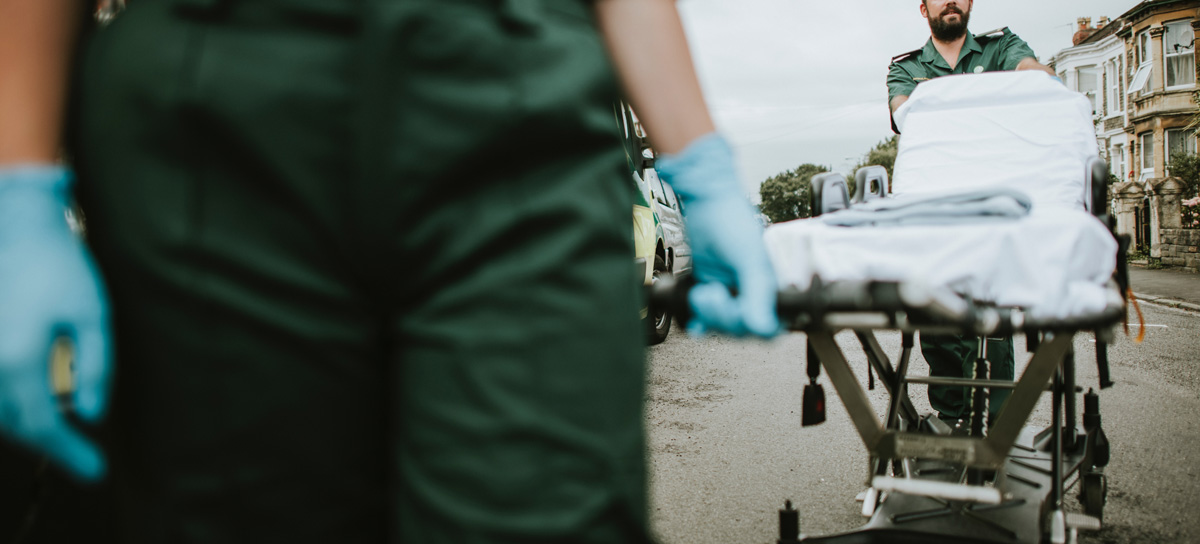Self-harming
International study
One in 25 patients attending Accident & Emergency departments for self‐harm will die by suicide within five years. Professor Karen Ousey is one of the lead authors on the major international study ‘Emergency department nurses’ attitudes towards patients who self‐harm’
SELF-harm is a major public health challenge, but nursing staff often struggle to fully understand the reasons behind it, according to the findings of an international research project carried out by experts at the University of Huddersfield and an overseas partner.
The recommendation is that emergency department staff should receive focused education so that they learn more about the psychology behind self-harm, which is often a precursor to suicide.
One of the authors of a new article that describes the project is Professor Karen Ousey, who directs the University of Huddersfield’s Institute of Skin Integrity and Infection Prevention. During her nursing career, she had first-hand experience of patients who had lacerated themselves in a variety of ways.
“So there is a wound care side to it and a need to help people manage their wounds so they don’t get an infection afterwards. But probably more important is the psychological dimension – how can we care effectively for people who self-harm?” said Professor Ousey.
She was joined in the research by her University of Huddersfield colleagues Dr Joanna Blackburn and Dr John Stephenson, plus Dr Gillian Rayner at the University of Central Lancashire and Professor Karen-Leigh Edward at Swinburne University of Technology in Melbourne, Australia. They have now published the article Emergency department nurses’ attitudes towards patients who self‐harm, which appears in the International Journal of Mental Health.
The authors carried out an exhaustive review and analysis of evidence from around the world. The article describes their sources and methodology.
Among the findings are that nursing staff across several countries, including the UK, Australia, Sweden, Finland, Brazil, and Taiwan, hold negative attitudes towards people who self‐harm. Emotional responses included frustration, anger and hostility.

Self‐harming and suicide risk
“Research both nationally and internationally suggests that emergency care nurses find treating patients who self‐harm emotionally challenging. Ambivalence, powerlessness and helplessness are commonly manifested in the development of negative attitudinal beliefs towards these patients,” write the authors, who also state that there is a “compelling relationship” between self‐harm and suicide.
“It is predicted that one in 25 patients presenting to emergency departments for self‐harm will die by suicide within the next five years, demonstrating the importance of this area in healthcare to save lives.”
The article states that: “A fundamental factor in the development and maintenance of negative attitudes was a lack of training and education, whilst positive attitudes were attributable to being knowledgeable about self‐harm”.
The conclusion is that self‐harm education for emergency department staff should include explanations and causes of self‐harm and suicide, plus range, forms, and functions of self‐harm and staff responses to it.
Education should also include ongoing clinical supervision where staff can explore their attitudes and beliefs in a non-threatening environment.
Professor Ousey confirmed that there will be further collaborative research in the topic, leading to greater support for healthcare professionals so they understand why people commit self-harm in the first place and to develop strategies to help.
“It’s a hidden problem. People don’t come up and say ‘I’ve been self-harming’. They often hide it, so it can be hard to understand why they do it.”
More news stories
Child-initiated family abuse research
Doctoral research into the extent of the problem and possible solutions to it
Stillbirth risk increases when sleeping on back
The findings of the new study is now in the NHS’s Saving Babies’ Lives information package for pregnant women
National award for analysis of wound dressings
Professor Karen Ousey and Dr Nikolaos Georgopoulos teamed with industry partners to win at the 2019 Journal of Wound Care Awards
